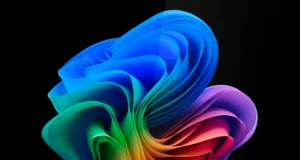Meta’s video generator AI, MovieGen, could rise in popularity due to its ability to simplify the creation of deepfake videos, especially when paired with its autogenerated audio clips.
Meta announced the preview of one of its latest AI models, a tool designed to create realistic videos, audio, and images. As per Meta, MovieGen is expected to outperform its rival models when it comes to the creation and alteration of multimedia, however, Meta’s MovieGen AI launch does not have an official release date yet.
The company said, “This AI model will help people enhance their artistic capabilities instead of replacing human artists,” which is a detail that we will observe closely after the release of MovieGen. One of the major highlights of this model is its ability to create a realistic video through the prompt of a single image. MovieGen can create videos for the described scenario and make anyone display any action with just a photograph.
Image: Meta
Meta MovieGen: Exploring How it Works
Earlier, Meta worked on its video and image AI models separately. The Make-a-scene video generator and Emu image synthesis model were the first steps Meta took toward the creation of image and video generator AI. Now, building on its earlier models, Meta is set to launch the video generator AI MovieGen for its audiences. This AI model will be able to create, edit, and alter videos, audio, and images. For the first time, the video generator AI will have autogenerated audio as required by the user or suitable for the video.
The users will be able to edit or add any changes to the existing video. Additionally, users can also create realistic videos from just an image of the person, an ability that has its pros and cons. The videos will be of high quality and the AI can generate clips of 16 seconds at the rate of 16 frames per second.
Meta has stated, “In human preference tests, MovieGen has stood out from OpenAI’s Sora, Runway Gen 3, and Chinese video AI mode Kling.” The company also claims that complex changes like the movement of objects, camera movement, and subject-object interactions can be done in the existing video.
Meta AI’s Deepfake Video Technology is Concerning
Deepfake videos have proven to be one of the most disturbing developments since the introduction of generative AI. While Meta calls the deepfake video generation capability “personalized video creation,” users are already aware of its potential to create more than just a personalized video. Through this feature, users can make anyone appear to do things they never would with a single photo of them.
Through MovieGen, the whole process of constructing deepfake video will become more convenient and as with all the other things on the internet, there will be no control over what is being created. There are many potential cases for misuse of this feature, and it’s impossible to fully grasp its implications.
This AI model of video synthesis can insert people into different situations and places. Additionally, it can auto-generate the audio for the same, making the video more realistic. All the changes and insertions can be made through simple text prompts offered by the user.
While Meta has made significant strides in video generation, the company recognizes that its current model still has limitations. To address this, they aim to enhance the video generation speed and overall quality by further expanding their models. Meta is also trying to implement the capabilities of video generative AI to enhance the creativity of artists without it being misused by its users.




